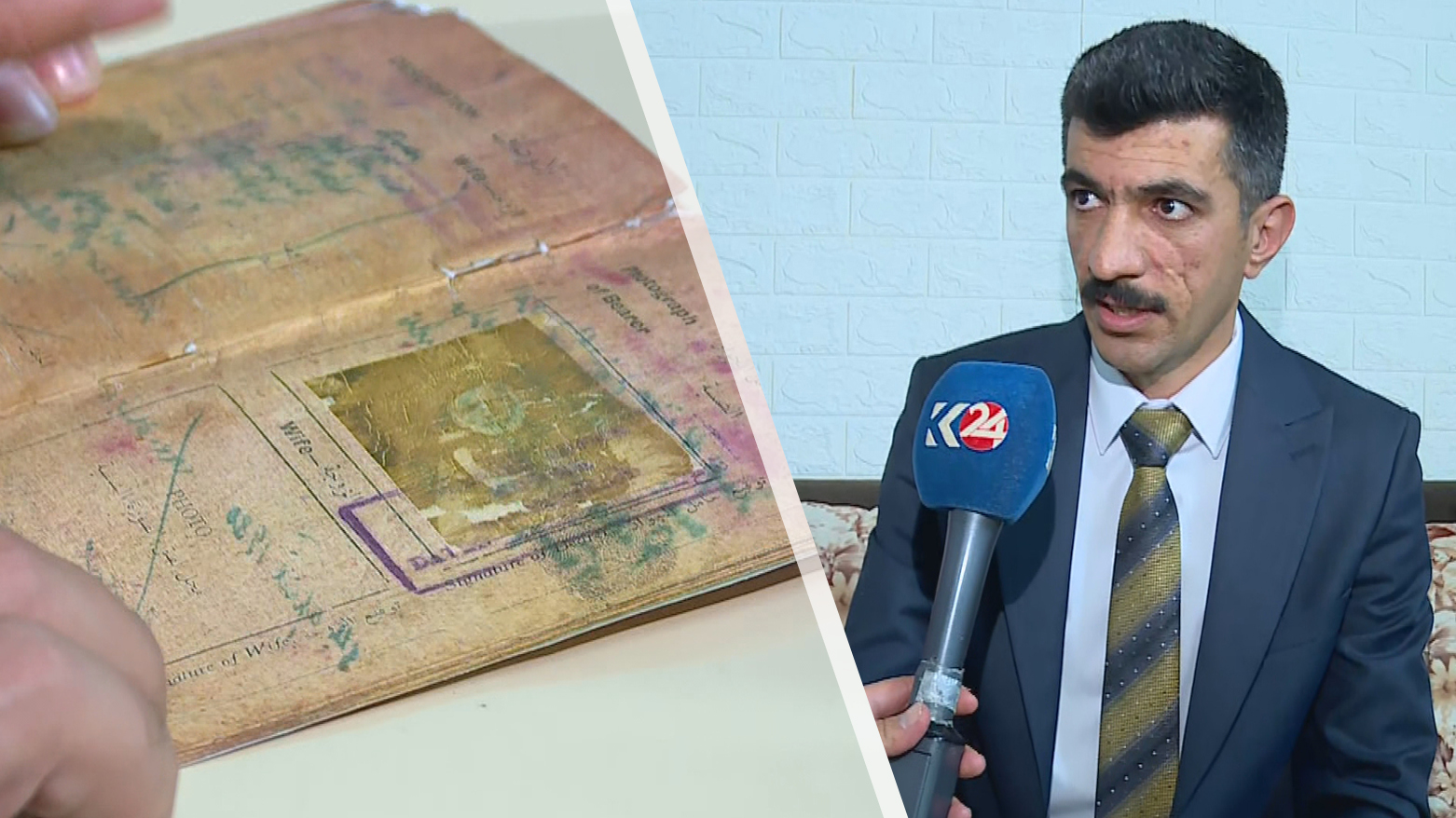A Trader's Legacy: Century-Old Passport from Koya Reveals an Ancestor's Remarkable Journeys
A nearly 100-year-old Iraqi passport belonging to a Koya livestock trader reveals a remarkable life of travel. Preserved by his family for five generations, the document is a cherished link to a bygone era of regional trade and personal history.

ERBIL (Kurdistan24) – In an era of digital records and fleeting online data, a tangible relic from the past offers a rare and intimate glimpse into a life of extraordinary travel and steadfast purpose. A nearly century-old Iraqi passport, meticulously preserved by a family in Koya, does more than simply document border crossings; it tells the rich, personal story of an ancestor whose journeys across the Middle East in the early twentieth century are now a cherished part of his family’s heritage.
This fragile document serves as a powerful testament to a bygone era and the enduring spirit of a man from Kurdistan.
The passport belongs to Murad Ahmed Hassan Abdullah, a citizen born in the historic city of Koya in 1840. In what is a remarkable detail of his life story, he obtained this official travel document in 1929, at the venerable age of 89.
The document itself, bearing the passport number 125, is a significant historical artifact, suggesting that Murad was among the very first citizens in the nascent state of Iraq to receive such a formal document, a symbol of a new era of national identity and regulated international movement.
For a man who had already lived through the vast majority of his life under different empires and systems of governance, this passport represented a new chapter, not just for him, but for the region itself.
Murad Ahmed Hassan Abdullah’s primary profession was that of a livestock trader, a demanding trade that necessitated extensive travel and a deep understanding of the region's markets and routes. His passport stands as official evidence of his commercial endeavors, bearing the stamps and visas that chronicle his journeys to Saudi Arabia, Syria, Palestine, and Transjordan.
These destinations paint a map of a bustling and interconnected Middle East, where trade flowed across newly established borders, driven by individuals like Murad whose livelihoods depended on movement and commerce.
Adding another layer to his story, a fifth-generation grandchild of Murad Ahmed shared a fascinating detail with Kurdistan24 correspondent Azar Farooq.
The descendant noted that the passport contains a French visa, a detail that speaks volumes about the scope of his great-grandfather’s trade and the geopolitical landscape of the time. The visa hints at travels into or through territories under the French Mandate, further illustrating the breadth of his commercial network and his ability to navigate the complex political realities of the period.
For the descendants of this Koya family, the passport is far more than a simple antique. It is a profound piece of their heritage, a tangible connection to an ancestor whose life spanned different centuries.
With immense pride, they have preserved this valuable memento, passing it down from one generation to the next. The document is a source of family lore and a symbol of their roots in the city of Koya.
Inside its pages, alongside the official stamps, are recorded personal characteristics that bring the historical figure to life: his eye color was black, and his hair, at the time of issuance, was white—small, humanizing details that transform him from a name in a ledger to a person who lived, worked, and traveled.
The story of Murad Ahmed Hassan Abdullah’s passport is a poignant human-interest narrative. It captures the intersection of personal history with the grand sweep of regional change, illustrating how a single document can encapsulate a lifetime of resilience, enterprise, and movement.
It is a legacy preserved in ink and paper, a quiet but powerful story of a citizen from Koya whose life of trade continues to inspire his family a century later.
Kurdistan24's correspondent Azar Farooq contributed to this report.
